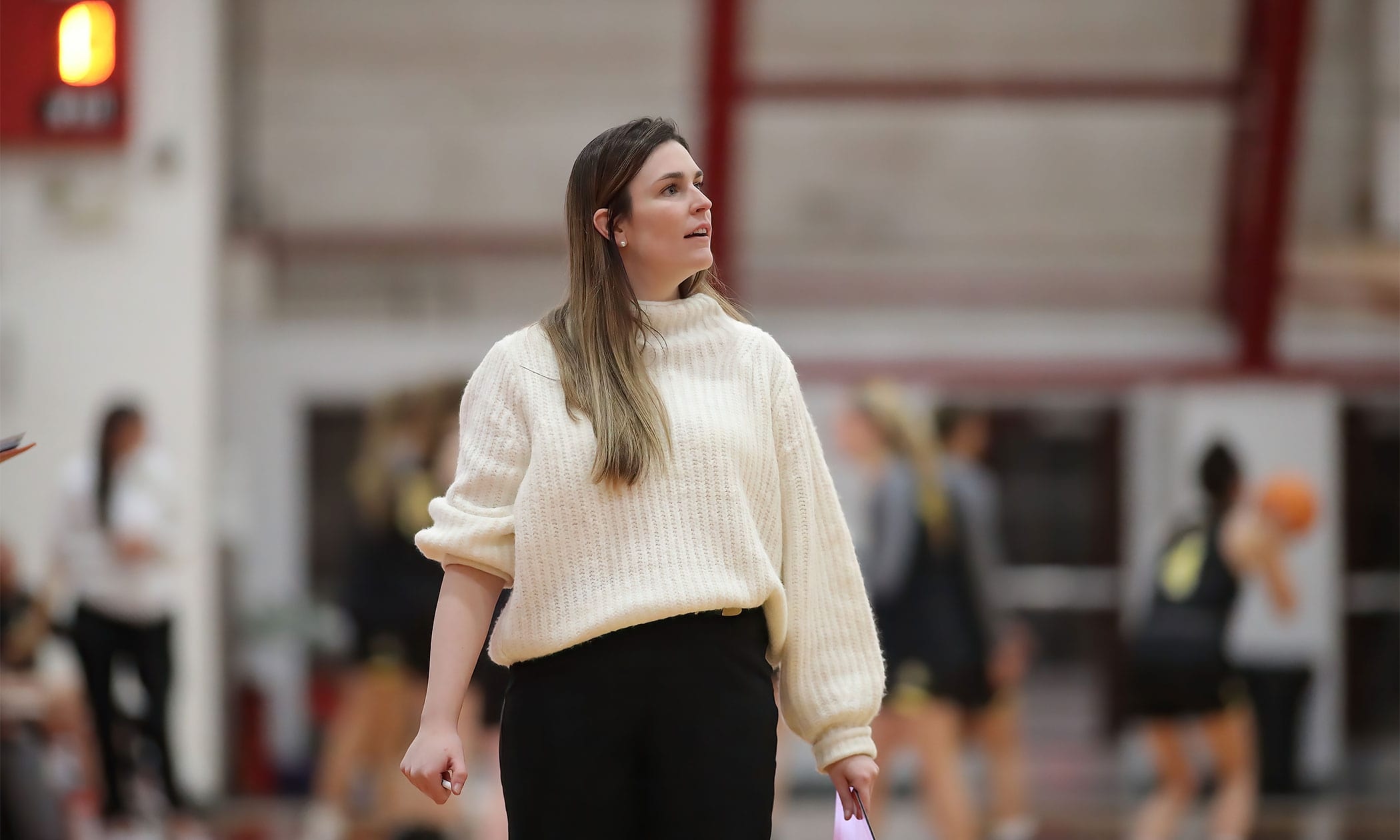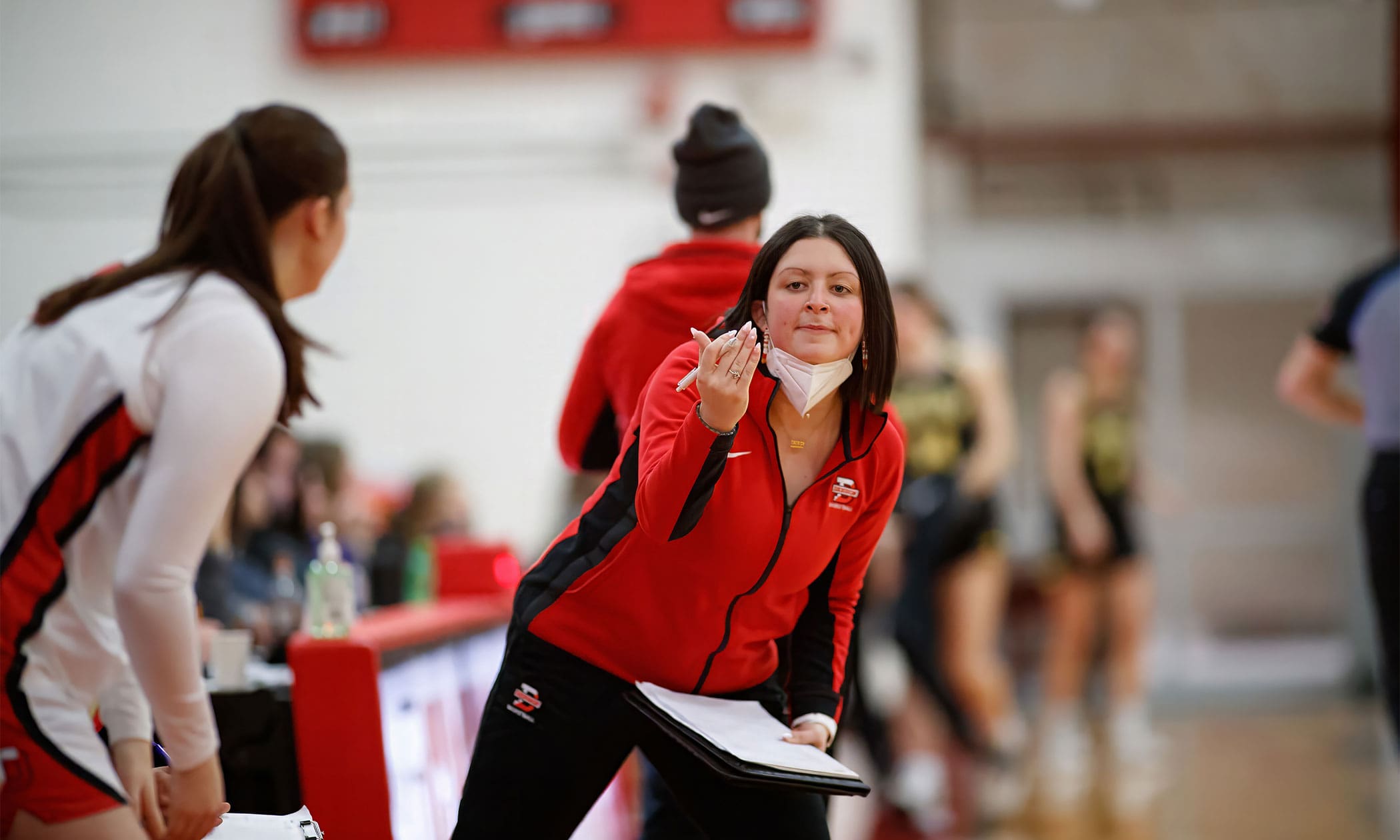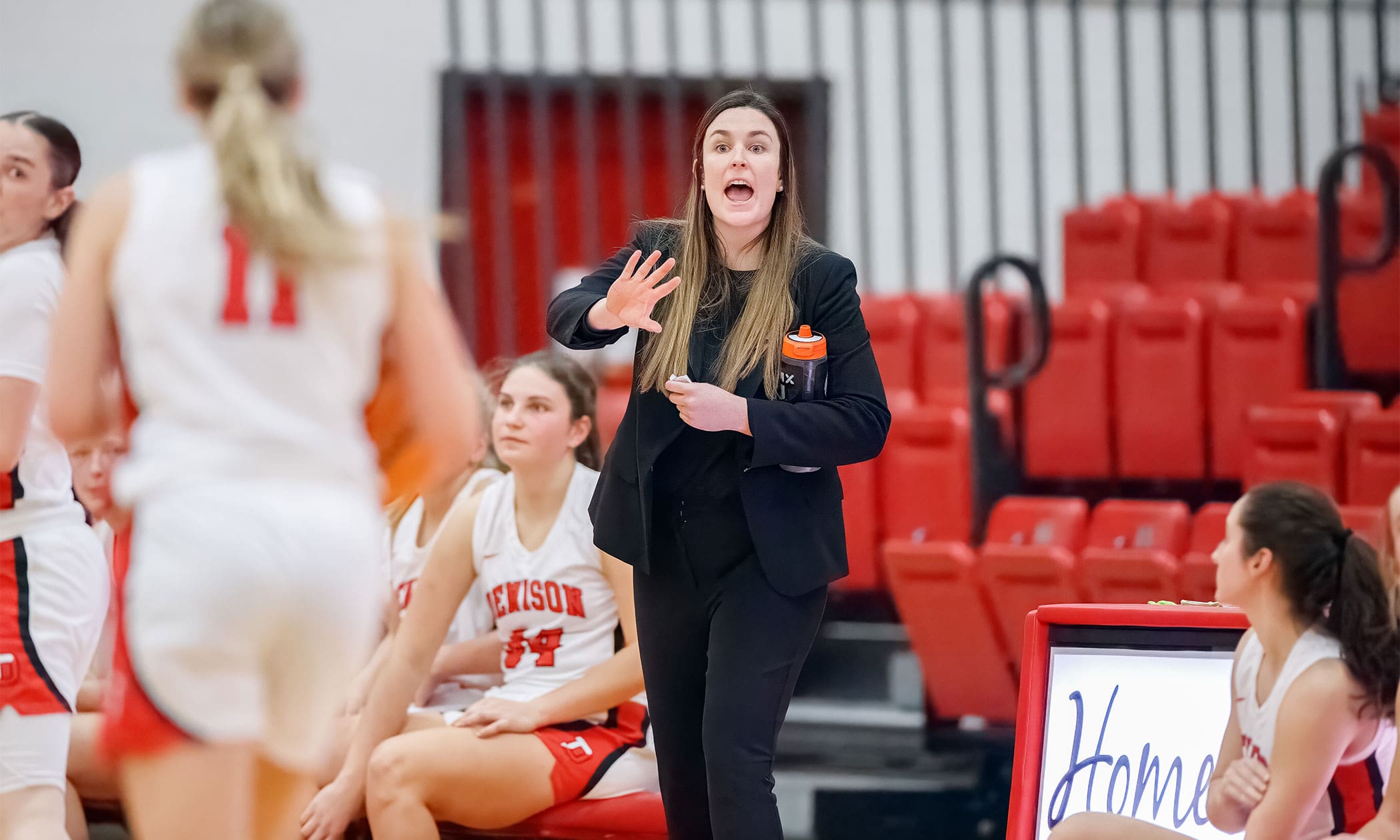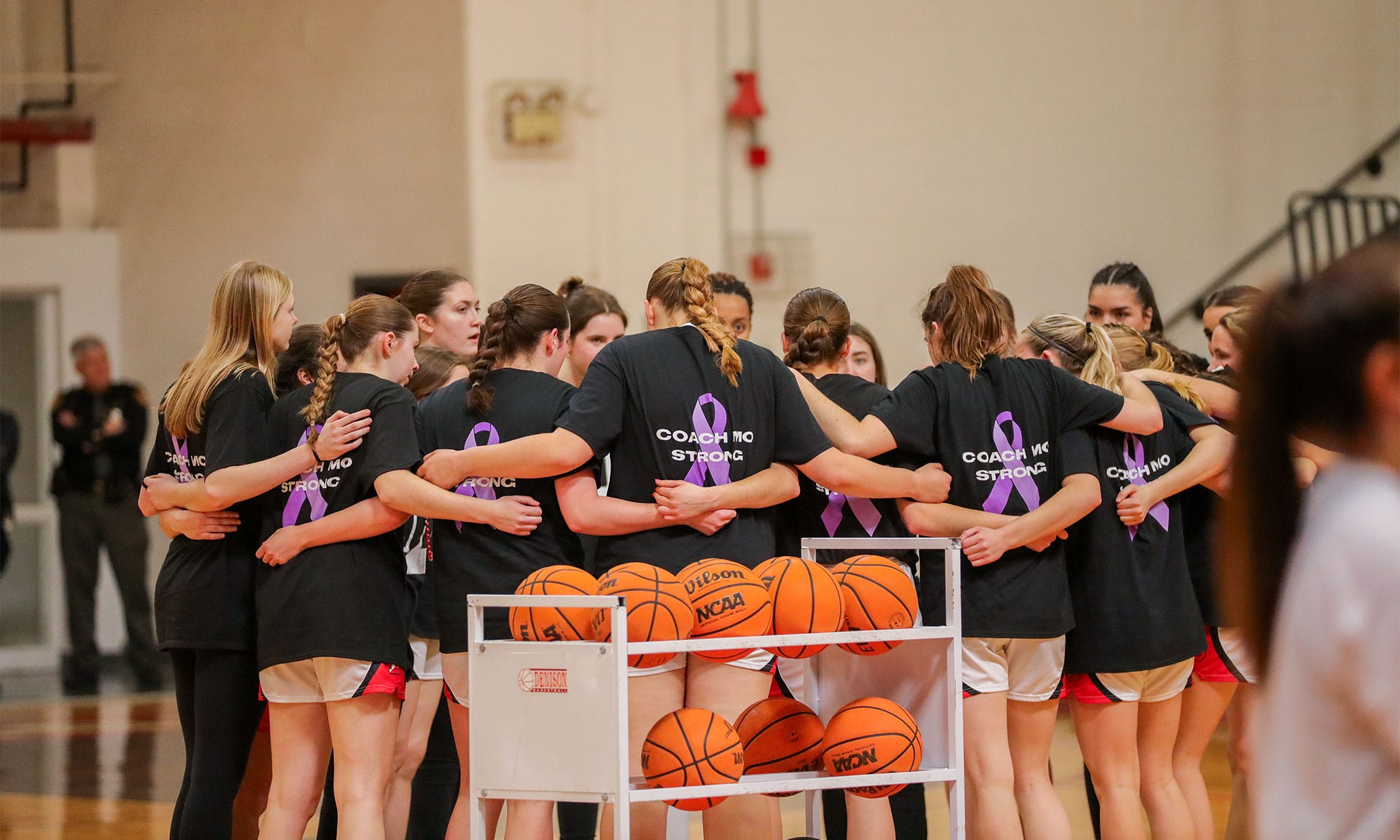In the fall of 2023, soon after Halloween, the Denison women’s basketball team gathers to watch film from its scrimmage against Muskingum University.
Assistant coach Liv Woolam tells the players they’ll be FaceTiming head coach Maureen Hirt instead of meeting with her in person.
This isn’t normal. The players are confused. And scared.
When Hirt, known to her players as Coach Mo, appears on the screen, she’s lying in a hospital bed, fighting back tears.
Now, the players are panicked.
Hirt is overwhelmed. She can’t speak. Her mother takes over and explains Hirt has been diagnosed with Hodgkin lymphoma, a rare cancer that affects the lymphatic system.
As the players process the news and work through their emotions, the focus on team culture takes on greater meaning and urgency. They know the 2023-24 season will present a challenge like none other.
“Unity is one of our core values, and we were about to understand its value,” Woolam says. “We were about to find out how strong we were.”
The immediate concern is Hirt.
Hodgkin lymphoma, previously called Hodgkin’s disease, is curable, especially when caught early. About 8,800 people in the U.S. were diagnosed with the disease in 2023; 90% are expected to survive five or more years after being diagnosed, according to National Cancer Institute statistics.
Those statistics, however encouraging, mean little in the moment. With the season about to tip off, all the students see is their beloved coach in a hospital gown, battling cancer.
Back on the bench
Hirt makes one thing clear to doctors and medical personnel treating her.
“I’m coaching this season,” she tells them.
She spends 18 days in the hospital. Woolam is among her few visitors allowed. The players want to see Hirt, but they understand the risk of spreading illness to someone in her condition.
The coach rejoins the team after Thanksgiving break, with the Big Red off to a flying 4-1 start. Denison was 10-16 overall in Hirt’s first season, but players and coaches sense something special is building as 2023 comes to a close.
On Dec. 9, the Big Red rally from an 18-point halftime deficit to stun Case Western Reserve University, 52-51, as junior Abigail Westmeyer hits a 3-point shot with 13 seconds remaining.
“Watching Coach Mo go through what she did and recognizing how difficult it was trickled down to the rest of the team,” Woolam says. “The players were like, ‘If she can fight through that kind of adversity, I should be able to do anything.’”
While rounds of chemotherapy sap her strength, Hirt is energized to be back in practice, back on the bench for game nights.
“Coaching isn’t a job for me,” Hirt says. “It’s part of who I am, and when I ask people to be ‘two feet in’ for our program, I have to be two feet in myself.”
The power of positive touch
Two feet in. It’s a slogan the team frequently uses, coined by junior Molly Fisher at the start of the 2022-23 season. It exemplifies the physical and holistic aspect of committing 100% to the program.
Hirt is the embodiment of two feet in.
Nothing stops her from leading the team, from building on the momentum. Not the doctor appointments or chemotherapy treatments or the protective mask she must wear around others.
Heading into 2024, the Big Red own a 9-2 record.
“She was willing to do whatever it took to be back with us as soon as possible and be around us again, and that shows her love and passion for basketball and this team,” Ava Warcaba ’24 says.
Hirt promotes the power of the “positive touch.” She encourages fist bumps and high-fives in practices and games, inspired by former NBA point guard Steve Nash — who, as legend has it, averaged 239 high-fives per game when he played for the Phoenix Suns.
“The impact of getting a positive touch from somebody after drills, or after a really hard competitive practice, is a little way that you can connect with your teammates and just continue to come back together as a group,” Hirt says. “Everyone thinks you need to do these big team-bonding events or you need to do these big things, but we try to carve out culture as something that we do every day.”
On Jan. 19, the Big Red defeat conference rival DePauw University, 54-48, for the first time since the 2015-16 season. Denison had been 2-28 in its previous 30 meetings against DePauw.
If there are any lingering doubts about the team’s commitment to “two feet in,” they’re vanquished on Feb. 3. The Big Red rally from 13 points down in the final five minutes to shock Wittenberg, 78-77. Morgan Kress ’27 delivers the game-winning free throw with 1.5 seconds remaining.
Denison is 16-5 overall and 7-3 in the conference. The Big Red’s improvement is the talk of the league, the fight of their coach and players an irresistible story.
“Usually there’s a point in every season when players get tired of coming to practice,” Woolam says. “It’s a long season, a grind. But that didn’t happen this year. The players looked forward to coming in every day to work with Coach Mo.”
Planning for the future
It’s been said that adversity does not build character but reveals it. Both coaches and players learn much about their inner strengths.
“We really leaned on what we had been preaching about team culture and its importance,” Woolam says.
Denison reaches the semifinals of the conference tournament. They finish the season 20-7 overall and 10-4 in conference play — doubling their win totals in each category from the previous season. The 20 victories are the most by the Big Red since the 2015-16 season.
Everyone in the athletic department supports Hirt’s fight. The men’s and women’s golf teams establish a Big Red Birdie Battle fundraiser. They ask for pledges for all birdies and eagles during the spring semester, with proceeds going to the James Cancer Hospital in Columbus.
Hirt is humbled and grateful. Her chemo treatments run through the spring, with a stem cell transplant scheduled for the summer.
The Big Red’s dramatic improvement in the standings earns Hirt individual recognition.
She wins the D3hoops.com regional coach of the year award and is named a finalist for the Division III Women’s Basketball Coaches Association coach of the year.
“I don’t know how anyone else could have won that award but Coach Mo,” Woolam says. “Nobody else won 20 games while battling cancer.”




